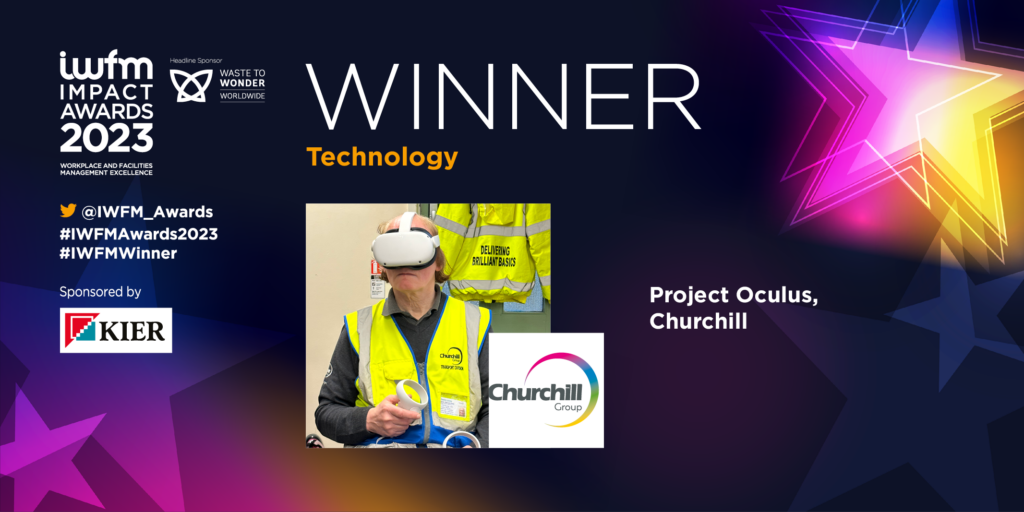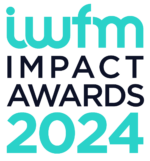Winner: Project Oculus, Churchill
Sponsored by: Kier Places

Unsatisfied with traditional approaches to training in the cleaning sector, Churchill has implemented a technological solution using virtual reality (VR).
Known as Project Oculus, cleaning trainees put on a VR headset and enter a virtual environment to discover what the role entails. The VR experience begins with the user inside a training centre where they hear an introduction to the programme. The training includes various zones and a timed period to clean a train.
Trainees virtually walked through the train, spotting rubbish and spills, and restocking consumables, giving them a feel for the on-the-job tasks that cannot be replicated in typical training settings.
The system even detects how users’ unique peripheral vision affects task success. Heat mapping technology records users’ eye movements to show if there are any sections of the train a user repeatedly misses. The importance is significant given recent studies showing that peripheral vision bias can affect vision and awareness of our surroundings.
Users receive scores and feedback immediately after a session with the chance to discuss the experience with their supervisors to improve progress.
Results gleaned
After an investment of £150,000 in VR training so far, the projected returns will come from savings – roughly £190,000 a year based on reduced training time and increased employee retention. New business is also expected as clients seek more technologically relevant approaches to service delivery.
Of the more than 150 cleaning operatives who have completed the course so far:
- 100% said they enjoyed the experience; and
- 95% said that they would recommend it to others.
While a few participants reported feeling dizzy using the VR headset, they regarded the experience positively as they thought highly of the investment in their training.
Best practice learning
- Makes training more immediate, interactive, customisable and fun – dense training manuals are no longer required;
- Delivers centralised and remote training;
- Uses an agile methodology, driven by VR design partners in weekly development phases that the team tested and reviewed;
- Focuses on three core topics: service quality regime; health and safety; and security protocols;
- Enables exciting and tailored training that identified weak spots;
- Adapts to user feedback;
- Harnesses the latest technology to deliver a modern training package; and
- Immerses users in a convincing world of on-the-job experiences.
Phase two of the VR project aims at greater inclusivity of those with neurodiverse conditions and more language options.
Key quotes
“I like the fact it was immersive and an interesting way to learn as opposed to our current way of learning,” says one participant.
“The environment was very realistic; the start of training was great, and we had a lot of time to complete and learn,” says a second participant.
“I’m really, really impressed by it. The whole process from beginning to end encompasses what we do in the role,” says a third participant.
